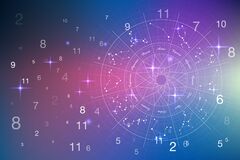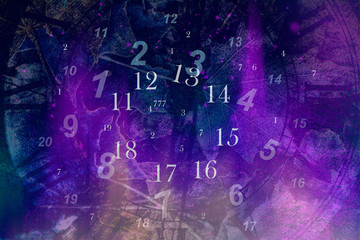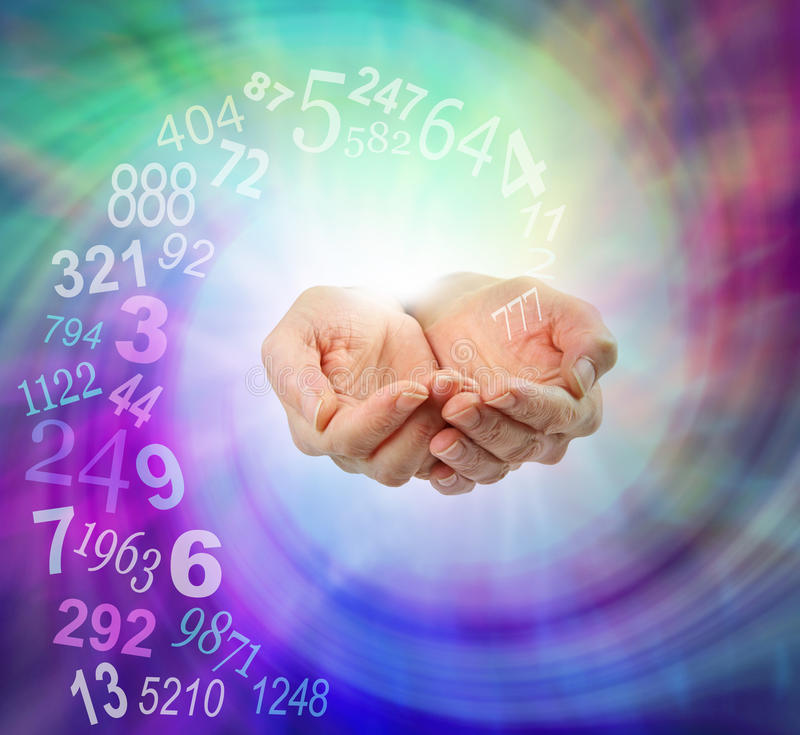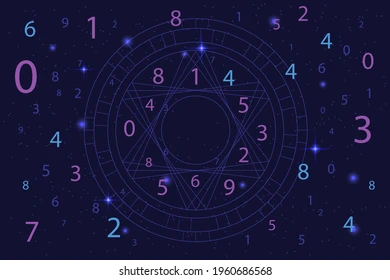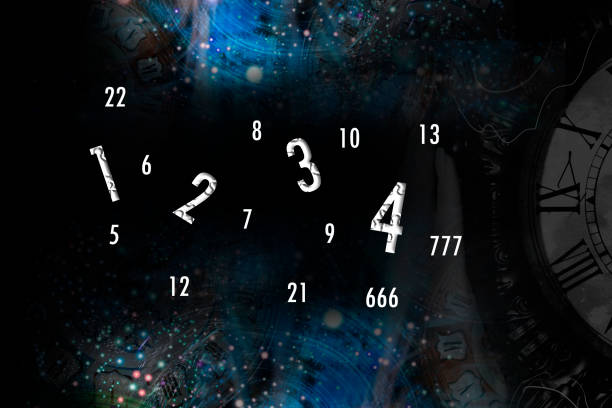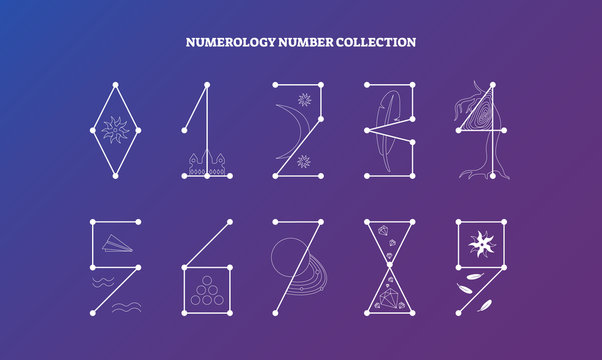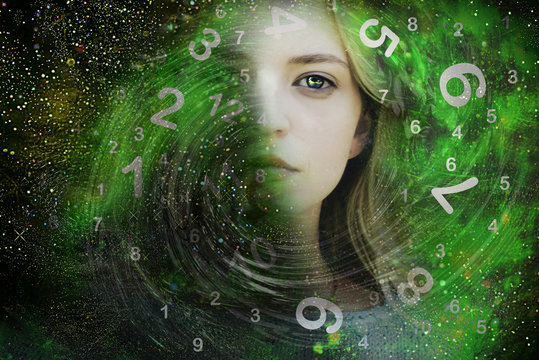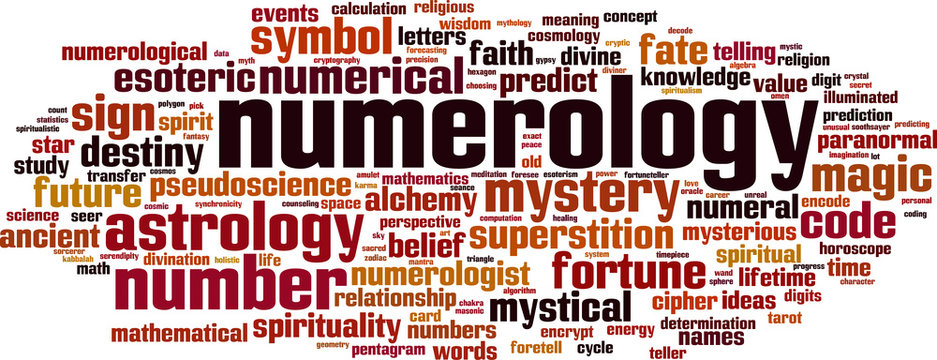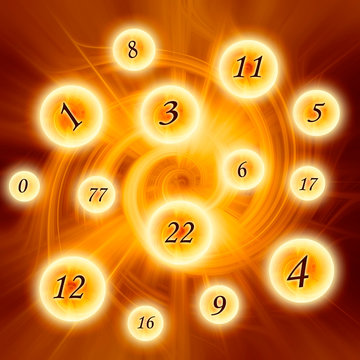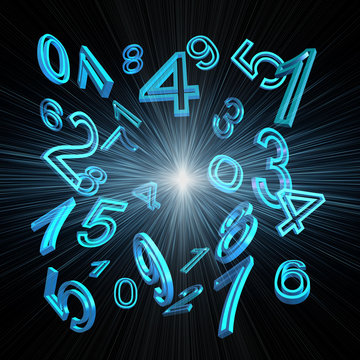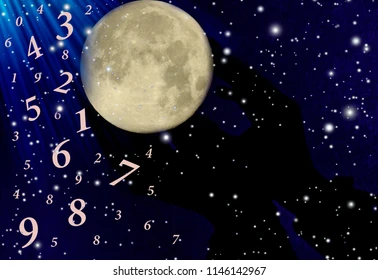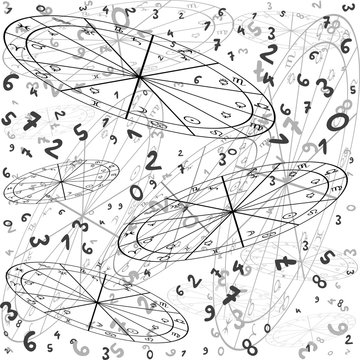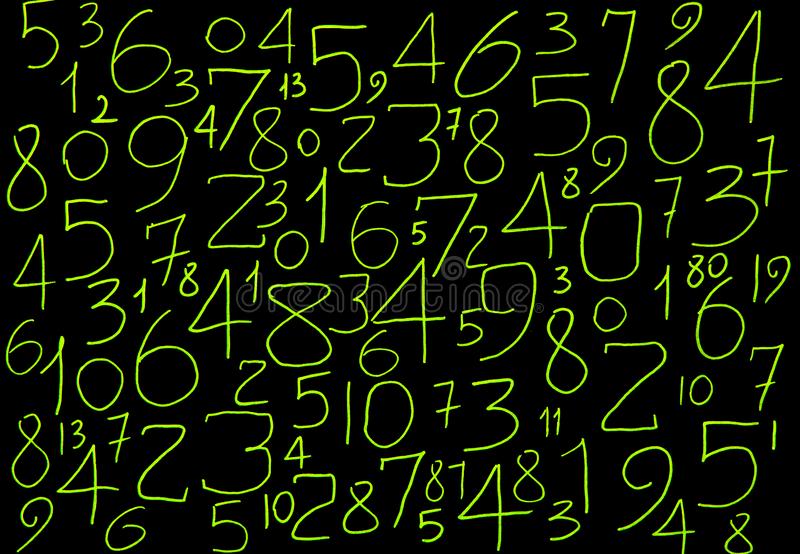
Introduction
Numerology, the ancient practice of divining insights and guidance from numbers, has fascinated people for centuries. From the Pythagoreans of ancient Greece to modern-day enthusiasts, numerology offers a unique perspective on life’s many facets. By analyzing numbers related to one’s birth date and name, numerologists provide insights into personality traits, life paths, and potential future events.
In today’s fast-paced world, more individuals are turning to numerology for clarity and direction in their personal and professional lives. Whether seeking advice on relationships, career decisions, or personal growth, a skilled numerologist can offer profound guidance and reassurance. However, finding a reputable and skilled numerologist can be a daunting task. With a plethora of practitioners available, it’s essential to know what to look for to ensure a meaningful and accurate consultation.
This article aims to guide you through the process of finding the best numerologist. We will explore the fundamentals of numerology, outline the qualities of a proficient practitioner, and provide practical tips for researching and choosing the right numerologist for your needs. By the end, you will be well-equipped to embark on your numerological journey with confidence, knowing you have the guidance of a trusted expert.
Understanding the World of Numerology
What is Numerology?
Numerology is the study of the mystical significance of numbers and their influence on human life. It is based on the belief that numbers are not merely symbols for counting but carry a deeper, spiritual meaning that can offer insights into our personalities, destinies, and life events. Numerology interprets these numbers to reveal patterns and trends that can guide individuals in making decisions and understanding themselves better.
Key Concepts in Numerology
Life Path Number: One of the most significant numbers in numerology, the life path number is derived from a person’s birth date. It reveals one’s life purpose, natural talents, and the path one should follow for personal fulfillment. Calculated by adding the digits of the birth date until a single digit (or master number) is obtained, this number offers a comprehensive overview of one’s life journey.
Destiny Number: Also known as the expression number, the destiny number is calculated from the full birth name. This number highlights one’s potential and the goals one is destined to achieve. It uncovers inherent skills and abilities, guiding individuals toward their true calling.
Soul Urge Number: Derived from the vowels in a person’s full birth name, the soul urge number reflects inner desires, motivations, and what one truly values. It reveals the deep, often hidden aspects of an individual’s personality and what they yearn for in life.
Personality Number: Calculated from the consonants in the full birth name, the personality number indicates how others perceive an individual. It describes external traits and behaviors that shape first impressions and social interactions.
Master Numbers: In numerology, certain numbers, such as 11, 22, and 33, are considered master numbers due to their powerful vibrations. These numbers are not reduced to single digits and signify higher spiritual potential and significant life challenges and accomplishments.
Why People Consult Numerologists
People turn to numerology for a variety of reasons, seeking guidance and insight in different aspects of their lives. Some common motivations include:
Life Guidance: Individuals often consult numerologists to gain clarity on their life’s purpose and direction. Understanding one’s life path number can help in making informed decisions about career, education, and personal development.
Relationship Advice: Numerology can provide valuable insights into compatibility between partners, friends, and family members. By comparing life path numbers and other core numbers, one can better understand relationship dynamics and navigate conflicts.
Career Decisions: Numerology can help identify careers and professions that align with an individual’s inherent talents and strengths. This guidance can be crucial for those at a crossroads or seeking a career change.
Personal Growth: Many people use numerology as a tool for self-discovery and personal growth. By understanding their core numbers, individuals can work on their weaknesses, leverage their strengths, and strive towards their full potential.
Personal Experiences and Testimonials
Numerology’s impact on people’s lives is often highlighted through personal stories and testimonials. Many individuals share experiences of how numerology has provided them with clarity during uncertain times, helped them understand their life’s purpose, or guided them towards fulfilling relationships and successful careers. These testimonials reflect the profound influence numerology can have, offering a blend of spiritual and practical guidance that resonates deeply with those who seek it.
Understanding numerology is the first step towards harnessing its potential to improve various aspects of life. By decoding the significance of numbers and interpreting their messages, individuals can gain valuable insights and make informed decisions that lead to a more harmonious and fulfilling existence.
Qualities of a Good Numerologist
Choosing the right numerologist can significantly impact the insights and guidance you receive. To ensure a meaningful and accurate numerology consultation, it’s crucial to find a practitioner who possesses certain qualities. Here are some key attributes to look for in a good numerologist:
Certification and Training
Formal Training:
A reputable numerologist often has formal training in numerology from recognized institutions or through accredited courses. This training ensures they have a deep understanding of the field and are well-versed in various numerological systems and techniques.
Certification:
While numerology is not regulated by a single governing body, certifications from respected organizations or renowned mentors can indicate a practitioner’s commitment to their craft. These certifications demonstrate that the numerologist has met certain standards of proficiency and ethical practice.
Experience and Expertise
Years of Practice:
Experience is a vital indicator of a numerologist’s skill. A numerologist with several years of practice is likely to have encountered a wide range of client situations, honing their ability to provide accurate and insightful readings.
Specializations:
Some numerologists specialize in specific areas, such as career guidance, relationships, or spiritual growth. Finding a numerologist with expertise in the area you’re interested in can lead to more tailored and relevant advice.
Reputation and Reviews
Online Reviews and Testimonials:
In today’s digital age, online reviews and testimonials are invaluable resources for assessing a numerologist’s reputation. Look for practitioners with consistently positive feedback from clients. Detailed testimonials that highlight specific benefits or accurate predictions can be particularly telling.
Word-of-Mouth Recommendations:
Personal recommendations from friends, family, or colleagues can also be a trustworthy source of information. If someone you know has had a positive experience with a numerologist, it increases the likelihood that you will too.
Professionalism and Ethics
Ethical Standards:
A good numerologist adheres to high ethical standards. They should respect client confidentiality, provide honest assessments, and avoid making unrealistic promises or guarantees. Ethical practitioners focus on empowering clients with insights rather than fostering dependency.
Professional Conduct:
Professionalism is reflected in how the numerologist conducts their sessions and interacts with clients. Punctuality, clear communication, and a respectful demeanor are all signs of a professional numerologist who takes their practice seriously.
Intuition and Empathy
Intuitive Abilities:
Numerology is both a science and an art, requiring a blend of analytical skills and intuition. A skilled numerologist uses their intuitive abilities to interpret the numbers and provide deeper insights that resonate with clients on a personal level.
Empathy:
Empathy is crucial for building a connection with clients. A good numerologist listens attentively, understands the client’s concerns, and provides guidance in a compassionate and supportive manner. This empathetic approach helps clients feel understood and valued.
Communication Skills
Clarity and Articulation:
Effective communication is essential for conveying complex numerological concepts in an understandable way. A good numerologist can clearly explain their findings, making sure clients grasp the significance of the numbers and how they relate to their lives.
Open Dialogue:
A reputable numerologist encourages questions and open dialogue. They are willing to discuss their methods, clarify doubts, and ensure that clients feel comfortable and informed throughout the consultation process.
Personal Compatibility
Aligning with Personal Beliefs and Values:
The best numerologist for you is someone whose approach aligns with your personal beliefs and values. This compatibility enhances the trust and rapport between you and the practitioner, making the consultation more effective and meaningful.
Comfort Level:
Finally, trust your instincts when choosing a numerologist. If you feel comfortable and confident in their presence, it’s a good sign that you have found the right practitioner for your numerological journey.
In conclusion, finding a good numerologist involves looking for a combination of formal training, experience, a solid reputation, professionalism, intuitive abilities, empathy, communication skills, and personal compatibility. By prioritizing these qualities, you can ensure a rewarding and insightful numerology experience that provides valuable guidance for your life.
Researching Potential Numerologists
Finding a reputable and skilled numerologist requires thorough research and careful consideration. To ensure you choose the right practitioner for your needs, it’s essential to explore various resources and evaluate potential numerologists based on several criteria. Here’s a comprehensive guide to researching potential numerologists:
Online Resources
Websites and Directories:
Start your search by visiting websites and directories dedicated to numerology. Many professional numerologists have their own websites where they detail their services, qualifications, and areas of expertise. Look for directories that list certified numerologists along with reviews and ratings from past clients.
Social Media Presence and Engagement:
Check social media platforms like Facebook, Instagram, and LinkedIn to find numerologists who actively share their insights and engage with their audience. A strong social media presence often indicates a numerologist’s commitment to their practice and willingness to educate and interact with the community. Read through their posts, comments, and testimonials to gauge their credibility and expertise.
Offline Resources
Books and Publications:
Consult books and publications on numerology to find references to respected numerologists. Many practitioners contribute to books, magazines, and journals, which can be a good indicator of their knowledge and reputation in the field. Look for authors who have published multiple works or are frequently cited by others in the field.
Community and Spiritual Groups:
Attend local community events, spiritual gatherings, or workshops focused on numerology and related subjects. These events often feature talks or sessions by experienced numerologists. Networking with attendees and speakers can lead to personal recommendations and direct introductions to reputable practitioners.
Evaluating Potential Numerologists
Certification and Qualifications:
Verify the certification and qualifications of potential numerologists. Check if they have completed formal training from recognized institutions and hold any certifications from accredited organizations. A numerologist’s educational background can provide insight into their level of expertise and commitment to the field.
Experience and Specializations:
Assess the experience and specializations of numerologists you are considering. An experienced numerologist who has been practicing for several years is likely to have honed their skills and gained valuable insights. Additionally, some numerologists may specialize in areas such as relationship counseling, career guidance, or spiritual growth. Choose a numerologist whose expertise aligns with your specific needs.
Reputation and Reviews:
Read reviews and testimonials from previous clients to gauge the reputation of potential numerologists. Positive reviews and detailed testimonials can provide a sense of the numerologist’s accuracy, professionalism, and ability to connect with clients. Be wary of practitioners with consistently negative feedback or a lack of reviews altogether.
Red Flags to Avoid
Unsubstantiated Claims:
Be cautious of numerologists who make grandiose or unsubstantiated claims about their abilities. Statements that guarantee specific outcomes or make extraordinary promises are often red flags. A reputable numerologist provides guidance based on numerical insights without making unrealistic guarantees.
Pressure Tactics and High Fees:
Avoid numerologists who use pressure tactics to coerce you into booking sessions or purchasing expensive packages. High fees that are not justified by their experience or reputation should also be a cause for concern. A good numerologist values ethical practices and respects your autonomy in making decisions.
Personal Consultation
Initial Contact:
Reach out to potential numerologists for an initial consultation or inquiry. This first interaction can provide valuable insights into their communication style, professionalism, and willingness to answer your questions. Use this opportunity to discuss your needs and assess whether their approach resonates with you.
Trial Sessions:
Consider booking a trial session with a numerologist to experience their services firsthand. A single session can help you evaluate their accuracy, empathy, and ability to provide clear and actionable insights. If you feel comfortable and satisfied with the session, you can proceed with more confidence.
Researching potential numerologists involves a combination of online and offline resources, careful evaluation of qualifications and experience, and attention to red flags. By conducting thorough research and considering personal consultations, you can find a numerologist who is reputable, skilled, and well-suited to provide the guidance you seek. Taking the time to find the right numerologist will ensure a rewarding and insightful experience that can help you navigate various aspects of your life.

Consulting a Numerologist
Consulting a numerologist can be a transformative experience, offering insights and guidance that help you navigate life’s complexities. To make the most of your numerology session, it’s important to prepare adequately, understand what to expect, and know how to integrate the insights into your life. Here’s a comprehensive guide to consulting a numerologist:
Preparing for the Consultation
Formulating Questions and Areas of Focus:
Before your session, spend some time reflecting on the areas of your life where you seek guidance. Formulate specific questions or concerns that you want to address. Common topics include relationships, career paths, personal growth, and life purpose. Having a clear focus will help the numerologist provide more targeted and meaningful insights.
Gathering Necessary Personal Information:
Numerologists typically require specific personal information to conduct a thorough analysis. This often includes your full birth name, birth date, and sometimes the birth dates of significant others. Ensure you have this information readily available to facilitate an accurate reading.
What to Expect During the Session
Typical Structure of a Numerology Session:
Numerology sessions vary in structure depending on the practitioner, but they generally follow a similar format. The session often begins with an introduction and a brief discussion of your goals and questions. The numerologist will then analyze your key numbers (such as life path number, destiny number, and soul urge number) and interpret their meanings in the context of your life.
Examples of Readings and Interpretations:
During the session, the numerologist will explain the significance of your core numbers and how they relate to your personality, strengths, challenges, and future potential. For example, they might discuss your life path number and how it influences your career choices, or your soul urge number and what it reveals about your inner desires. The insights provided can help you understand patterns and trends in your life and offer guidance on how to navigate them.
Post-Consultation Steps
Reflecting on the Insights Gained:
After the session, take some time to reflect on the insights and advice provided. Consider how the numerologist’s interpretations resonate with your current life situation and whether they offer new perspectives or validation of your experiences. Reflecting on these insights can help you internalize and make sense of the information.
Applying the Advice to Daily Life:
Integrate the guidance from the numerology session into your daily life. This might involve making changes in your career path, improving relationships, or embarking on personal growth initiatives. Use the insights as a framework for making decisions and setting goals that align with your true self and life purpose.
Personalizing the Experience
Aligning with Personal Beliefs and Values:
Ensure that the numerologist’s approach aligns with your personal beliefs and values. This alignment enhances the relevance and impact of the insights you receive. If you follow a specific spiritual or cultural tradition, consider how the numerology guidance fits within that context.
Trial and Error:
Don’t be afraid to consult multiple numerologists to find the best fit. Each numerologist has a unique style and approach, and experiencing different perspectives can help you find one that resonates most with you. Initial consultations with various practitioners can provide a sense of their methods and whether you feel comfortable with their guidance.
Case Studies
Success Stories:
Many people have experienced significant positive changes after consulting a numerologist. For instance, someone might discover their ideal career path through their life path number, leading to greater job satisfaction and success. Others might gain clarity on relationship dynamics, helping them improve or strengthen their bonds with loved ones.
Lessons Learned:
While many find great value in numerology consultations, it’s important to approach the experience with an open mind and realistic expectations. Understand that numerology offers guidance and insights rather than definitive answers. Use the information as a tool for personal growth and decision-making, rather than relying solely on it for all life choices.
Consulting a numerologist can provide valuable insights into various aspects of your life, helping you make informed decisions and fostering personal growth. By preparing adequately, understanding what to expect during the session, and applying the advice thoughtfully, you can maximize the benefits of numerology. Remember to personalize the experience, aligning it with your beliefs and values, and be open to exploring different practitioners to find the one that best meets your needs. A well-conducted numerology session can be a powerful catalyst for positive change and deeper self-understanding.
Personalizing the Search for a Numerologist
Finding the right numerologist is a deeply personal journey that involves aligning with a practitioner who resonates with your unique needs, beliefs, and values. To ensure a meaningful and effective numerology experience, it’s crucial to personalize your search. Here’s how you can tailor your search for a numerologist to find the best fit for you:
Aligning with Personal Beliefs and Values
Understanding Your Own Beliefs:
Start by reflecting on your own spiritual, cultural, and personal beliefs. Consider what you hope to gain from a numerology session and how it fits into your broader worldview. Understanding your motivations and expectations will help you find a numerologist whose approach aligns with your perspective.
Researching Numerologists’ Philosophies:
Different numerologists may have varying approaches and philosophies. Some may integrate elements of spirituality or specific cultural traditions, while others might focus on a more scientific or analytical approach to numerology. Look for practitioners whose philosophies resonate with your own beliefs and values. Reading their bios, blogs, or published works can provide insight into their perspectives.
Considering Cultural and Spiritual Alignment
Cultural Sensitivity:
If cultural context is important to you, seek out numerologists who have experience or understanding of your cultural background. This can enhance the relevance and depth of the insights you receive. For example, some numerologists may specialize in traditional Eastern numerology practices, while others might focus on Western numerology.
Spiritual Practices:
For those who follow specific spiritual practices, finding a numerologist who respects and incorporates those practices can be beneficial. Whether you’re interested in a practitioner who aligns with astrology, tarot, or other metaphysical disciplines, ensure their practice complements your spiritual journey.
Trial and Error
Initial Consultations:
Consider booking initial consultations with a few different numerologists. This allows you to experience their style and approach firsthand. Use these sessions to assess their communication style, empathy, and the depth of their insights. An initial consultation can help you determine if you feel comfortable and connected with the practitioner.
Evaluating the Fit:
During and after the initial consultations, reflect on how you felt about each numerologist. Did you feel heard and understood? Were their insights and advice relevant and helpful? Trust your instincts and choose a numerologist with whom you feel a genuine connection and comfort level.
Asking for Recommendations
Word-of-Mouth:
Personal recommendations from friends, family, or colleagues who have had positive experiences with numerologists can be invaluable. Ask them about their experiences, what they liked about the practitioner, and how the session helped them. Word-of-mouth referrals can lead you to trustworthy and skilled numerologists.
Online Communities:
Join online forums and social media groups dedicated to numerology and metaphysical practices. These communities can be a rich source of recommendations and reviews. Engaging in discussions and asking for advice from experienced members can provide additional insights into finding the right numerologist.
Reflecting on Past Experiences
Previous Consultations:
If you’ve consulted numerologists in the past, reflect on those experiences. What did you like or dislike about those sessions? Use these reflections to inform your current search, focusing on finding a numerologist who addresses the aspects that are most important to you.
Personal Growth and Goals:
Consider how your goals and personal growth journey have evolved. As your needs change, the qualities you seek in a numerologist might also shift. Ensure that the numerologist you choose is aligned with your current life stage and aspirations.
Trusting Your Instincts
Intuitive Connection:
Ultimately, trust your intuition when selecting a numerologist. A strong intuitive connection can significantly enhance the effectiveness of the numerology session. If you feel a sense of trust and rapport with a practitioner, it’s likely that you’ve found the right fit.
Personalizing your search for a numerologist involves aligning with a practitioner who resonates with your beliefs, values, and specific needs. By considering cultural and spiritual alignment, trying out different practitioners, seeking recommendations, and reflecting on past experiences, you can find a numerologist who is well-suited to guide you on your numerological journey. Trust your instincts and take the time to find a numerologist who makes you feel comfortable, understood, and empowered. This personalized approach ensures a more meaningful and impactful numerology experience.

Numerology Experiences
Exploring real-life case studies can provide valuable insights into the process of finding the best numerologist. These stories illustrate the various paths people take to discover a numerologist who meets their unique needs and how the right guidance can profoundly impact their lives. Here are some illustrative case studies:
Case Study 1: Career Transition Success
Background:
Sarah, a 35-year-old marketing professional, felt unfulfilled in her career despite her success. She was considering a career change but was unsure of the right path.
The Search:
Sarah began her search online, exploring various numerologists’ websites and reading client reviews. She narrowed her choices down to three numerologists who specialized in career guidance and had positive testimonials.
Initial Consultations:
Sarah scheduled initial consultations with each numerologist. During these sessions, she evaluated their communication styles, how comfortable she felt, and the relevance of their insights. She found that one numerologist, in particular, resonated with her because of their deep understanding of career transitions and their empathetic approach.
Outcome:
Through her sessions with this numerologist, Sarah discovered her life path number and destiny number, which highlighted her natural talents in creative fields and her potential for entrepreneurship. Armed with this insight, Sarah confidently transitioned into a new career as a freelance graphic designer, which brought her greater satisfaction and fulfillment.
Case Study 2: Enhancing Relationship Dynamics
Background:
John and Emily, a married couple, were facing communication challenges and sought guidance to improve their relationship dynamics.
The Search:
The couple asked for recommendations from friends and family and received a referral to a numerologist known for their work with couples.
First Session:
During their first session, the numerologist calculated both John’s and Emily’s core numbers, including their life path numbers and compatibility chart. The numerologist provided insights into their personality traits, communication styles, and potential areas of conflict.
Follow-Up Sessions:
Through follow-up sessions, John and Emily learned specific strategies to enhance their communication and deepen their understanding of each other. The numerologist’s empathetic guidance helped them apply numerological insights to their daily interactions, significantly improving their relationship.
Outcome:
John and Emily reported feeling more connected and understood. The numerologist’s personalized approach helped them navigate their differences and strengthen their bond, leading to a more harmonious marriage.
Case Study 3: Personal Growth and Self-Discovery
Background:
Linda, a 28-year-old artist, felt stuck in her personal growth journey and sought deeper self-understanding.
The Search:
Linda joined online communities and forums dedicated to numerology. She engaged with members and asked for recommendations, eventually finding a numerologist with a strong presence in the community and a holistic approach to numerology.
First Session:
In her first session, the numerologist calculated Linda’s core numbers and provided a detailed analysis of her strengths, weaknesses, and life purpose. The numerologist’s holistic approach, which integrated numerology with other spiritual practices, resonated with Linda.
Ongoing Guidance:
Linda continued to work with the numerologist over several months. The sessions focused on personal growth strategies, such as embracing her creative talents and overcoming self-doubt. The numerologist also provided personalized exercises and meditations based on Linda’s numerological profile.
Outcome:
Linda experienced significant personal growth and a renewed sense of purpose. The numerologist’s guidance helped her unlock her creative potential and approach her art with newfound confidence and inspiration.
Case Study 4: Navigating Major Life Decisions
Background:
Mark, a 40-year-old entrepreneur, was facing major life decisions regarding his business and personal life. He sought numerological guidance to gain clarity.
The Search:
Mark researched numerologists who specialized in business and personal life guidance. He read reviews and reached out to a few practitioners to discuss his needs and expectations.
Selection Process:
After initial discussions, Mark chose a numerologist who had extensive experience working with business owners and a practical approach to numerology.
Detailed Analysis:
In their sessions, the numerologist provided a comprehensive analysis of Mark’s business and personal life numbers. They discussed the timing of major decisions, potential challenges, and opportunities based on Mark’s numerological cycles.
Outcome:
Mark gained clarity on the optimal timing for expanding his business and made informed decisions that aligned with his life path and personal goals. The numerologist’s insights helped him navigate his challenges with confidence and achieve greater balance between his professional and personal life.
Lessons Learned
Common Challenges:
Finding the Right Fit: Many individuals face challenges in finding a numerologist whose approach and personality resonate with them. It often requires trying out several practitioners.
Interpreting Guidance: Applying numerological insights to practical life situations can be challenging. Working with a numerologist who offers clear and actionable advice is crucial.
Tips from Experienced Clients:
Do Thorough Research: Take the time to read reviews, seek recommendations, and understand the numerologist’s approach.
Trust Your Instincts: Choose a numerologist you feel comfortable with and who understands your specific needs.
Be Open and Receptive: Approach the numerology session with an open mind and a willingness to reflect on and apply the insights gained.
These case studies highlight the diverse paths individuals take to find the best numerologist for their needs and the significant impact the right guidance can have on their lives. By conducting thorough research, seeking recommendations, and trusting their instincts, these individuals were able to find numerologists who provided meaningful and transformative insights. Whether it’s for career guidance, relationship improvement, personal growth, or major life decisions, finding the right numerologist can lead to profound and positive changes.
Conclusion
Finding the best numerologist is a personal and transformative journey that can offer profound insights and guidance for various aspects of your life. By understanding the key qualities of a good numerologist, conducting thorough research, and considering your personal needs and values, you can ensure a rewarding experience that aligns with your goals.
Start by exploring online and offline resources, such as websites, directories, social media, books, and community events, to gather information about potential numerologists. Evaluate their qualifications, experience, reputation, and areas of specialization to find practitioners who meet your specific needs. Pay attention to red flags such as unsubstantiated claims and pressure tactics, and trust your instincts when assessing potential numerologists.
Consider cultural and spiritual alignment, seek personal recommendations, and be open to trying initial consultations with different practitioners. Reflect on past experiences and current personal growth goals to ensure that the numerologist you choose resonates with you.
Real-life case studies demonstrate how personalized numerology consultations can lead to significant positive changes in career, relationships, personal growth, and major life decisions. These stories underscore the importance of finding a numerologist who not only has the necessary skills and experience but also connects with you on a personal level.
In conclusion, the right numerologist can be a powerful catalyst for positive change and deeper self-understanding. By taking the time to find a practitioner who aligns with your beliefs, values, and specific needs, you can unlock the full potential of numerology and embark on a journey of self-discovery and personal growth. Whether you are seeking clarity, guidance, or validation, finding the best numerologist can provide you with the tools and insights to navigate your life’s path with confidence and purpose.
Where To Go Now
To further aid you in your search for the best numerologist, here are some additional resources that can provide valuable information, guidance, and community support:
Online Directories and Websites
The Association of Professional Numerologists (APN)
Website: professionalnumerologists.com
Description: APN provides a directory of certified numerologists, along with their qualifications, specializations, and client reviews.
Numerology.com
Website: numerology.com
Description: Offers detailed profiles of numerologists, client testimonials, and a range of numerology resources and articles.
AstroSeek Numerology
Website: astro-seek.com
Description: Provides a comprehensive list of numerologists, along with tools for personal numerology calculations and interpretations.
Books and Publications
“Numerology: The Complete Guide” by Matthew Oliver Goodwin
Description: This book provides an in-depth exploration of numerology, including how to find and evaluate a professional numerologist.
“The Complete Book of Numerology” by David A. Phillips
Description: Offers insights into the principles of numerology and practical advice on how to select a numerologist who aligns with your personal needs.
“Numerology and the Divine Triangle” by Faith Javane and Dusty Bunker
Description: Combines numerology with astrology and tarot, providing a holistic approach to finding a numerologist who can offer multifaceted insights.
Online Courses and Workshops
Udemy: Numerology Courses
Website: udemy.com
Description: Offers various courses on numerology that can help you understand the practice better and choose a qualified numerologist.
The Numerology School
Website: thenumerologyschool.com
Description: Provides online courses and certification programs in numerology, helping you identify trained and certified numerologists.
Social Media Groups and Online Communities
Facebook Groups
Examples: “Numerology Enthusiasts,” “Numerology for Beginners,” “Spiritual Numerology”
Description: These groups offer a platform to connect with numerology enthusiasts, share experiences, and get recommendations for trusted numerologists.
Reddit: r/Numerology
Website: reddit.com/r/Numerology
Description: A community where you can ask questions, share experiences, and get advice on finding a numerologist.
Professional Organizations
The International Association of Numerologists (IAN)
Website: iannumerology.com
Description: An organization that offers a directory of professional numerologists, resources for learning, and standards for practice.
The Professional Association of Numerologists (PAN)
Website: panumerologists.org
Description: Provides information on certified numerologists and offers guidelines on what to look for in a professional practitioner.
Local Resources
Metaphysical Bookstores and Centers
Description: Many metaphysical bookstores and spiritual centers host numerology workshops and have bulletin boards with information about local numerologists.
Spiritual and Wellness Expos
Description: Attend local expos dedicated to spirituality and wellness, where numerologists often offer mini-sessions and consultations. These events can be a great way to meet practitioners in person and get a feel for their approach.
By utilizing these resources, you can enhance your understanding of numerology and find a numerologist who is well-qualified, reputable, and aligned with your personal needs and values.

